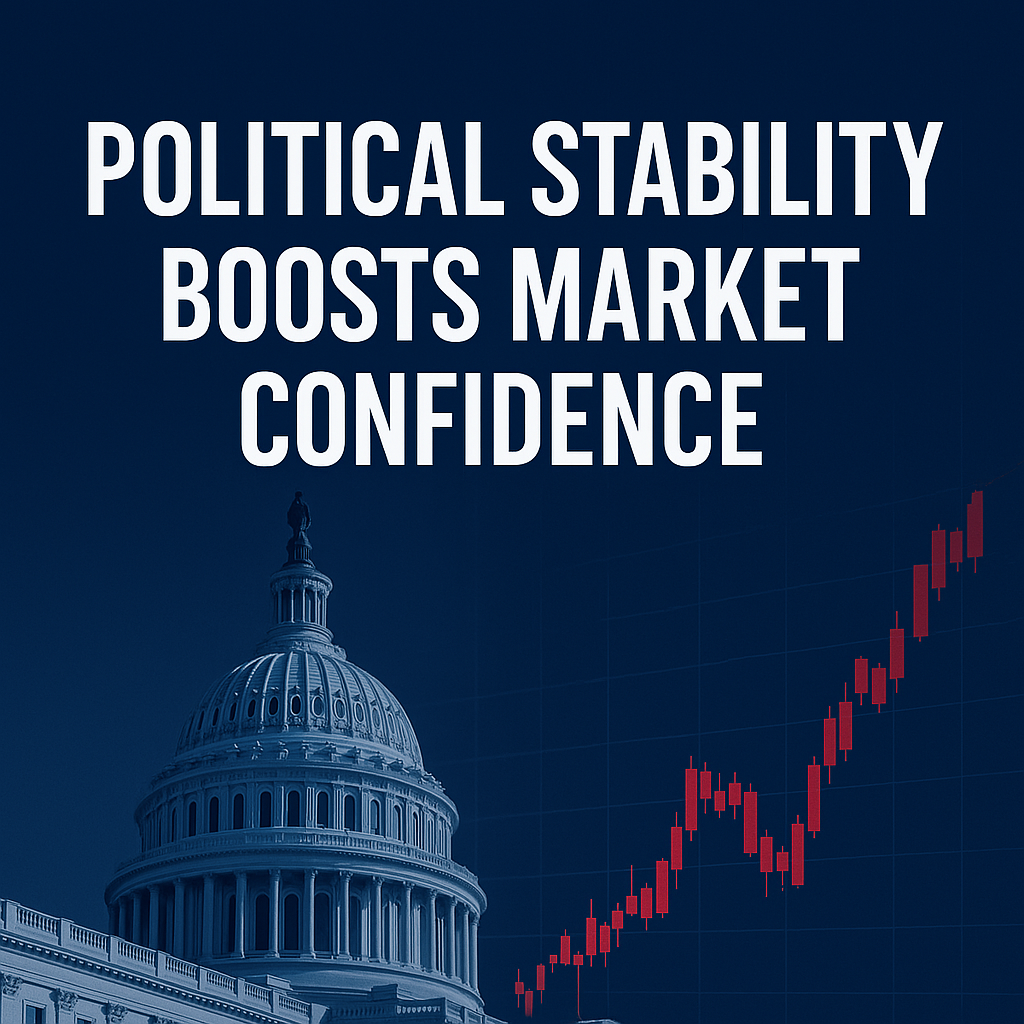In a political environment often marred by uncertainty, continuity at the top can be a calming signal for financial markets. The recent reelection of Mike Johnson as U.S. House Speaker has been welcomed by investors as a sign of potential political stability—helping ease concerns over gridlock, fiscal uncertainty, and legislative standstill.
Markets responded positively to the development, with the S&P 500 rising 0.8% following the news, and U.S. Treasury yields remaining stable, suggesting reduced volatility expectations. As investors digest this event, the broader question is: how does political stability—or the lack thereof—impact market performance?
Why Stability Matters for Markets
Stable governance plays a foundational role in investor sentiment. It signals continuity in economic policymaking, fiscal responsibility, and the likelihood of bipartisan cooperation on key issues like government funding, debt ceiling negotiations, and infrastructure spending.
Historically, political chaos—such as protracted battles over leadership or spending bills—can rattle markets and increase risk premiums. A stable leadership structure, in contrast, provides a degree of predictability that investors crave.
“The Speaker’s reelection removes one layer of uncertainty in a politically divided Congress,” noted Lauren Willis, a senior strategist at Barclays Capital. “While markets still face broader geopolitical and economic headwinds, this is a short-term win for investor confidence.”
Key Policy Implications for Investors
Johnson’s continued leadership suggests a likely continuation of current fiscal priorities, including:
- Negotiating bipartisan budget resolutions that avoid government shutdowns.
- Streamlining legislative timelines for economic and infrastructure bills.
- Managing the national debt with less brinkmanship.
The perception of legislative functionality could bolster market optimism, particularly in sectors tied to government funding—such as defense, infrastructure, and renewable energy.
Moreover, Johnson’s leadership continuity could fast-track pending legislation on AI regulation and technology innovation funding—two hot-button issues that intersect with major growth sectors in the market.
Global Confidence and Capital Flows
Political stability at home also sends signals abroad. For global investors, particularly sovereign wealth funds and institutional players, stable U.S. governance reinforces the country’s appeal as a safe haven for capital.
The U.S. dollar strengthened modestly following the reelection news, and emerging market indices saw slight pullbacks as capital flowed toward U.S. equities and bonds. This underscores how even minor shifts in U.S. political sentiment can have global ripple effects.
Future Trends to Watch
- Debt Ceiling Talks: Watch how Johnson navigates debt ceiling negotiations later this year—early signs of bipartisan cooperation could reduce market anxiety.
- Fiscal Policy Direction: Track signals on government spending priorities, especially in sectors with legislative tailwinds like tech, defense, and green energy.
- Election-Year Positioning: With the 2026 midterms approaching, political strategies are already shaping economic policy moves. Investors should anticipate sector-specific volatility as platforms solidify.
Key Investment Insight
In times of political clarity, markets tend to reward stability with lower volatility and greater sector momentum. Investors may consider rebalancing portfolios toward industries that benefit from legislative continuity—such as infrastructure, defense, and financials.
Additionally, keeping an eye on political cues can serve as a valuable risk management tool. While the reelection of a House Speaker may seem procedural, its impact on market psychology can be significant.
Stay Informed with MoneyNews.Today
For the latest investor analysis at the intersection of politics, policy, and markets, follow MoneyNews.Today. We bring you insights that move beyond the headlines—into your portfolio.





